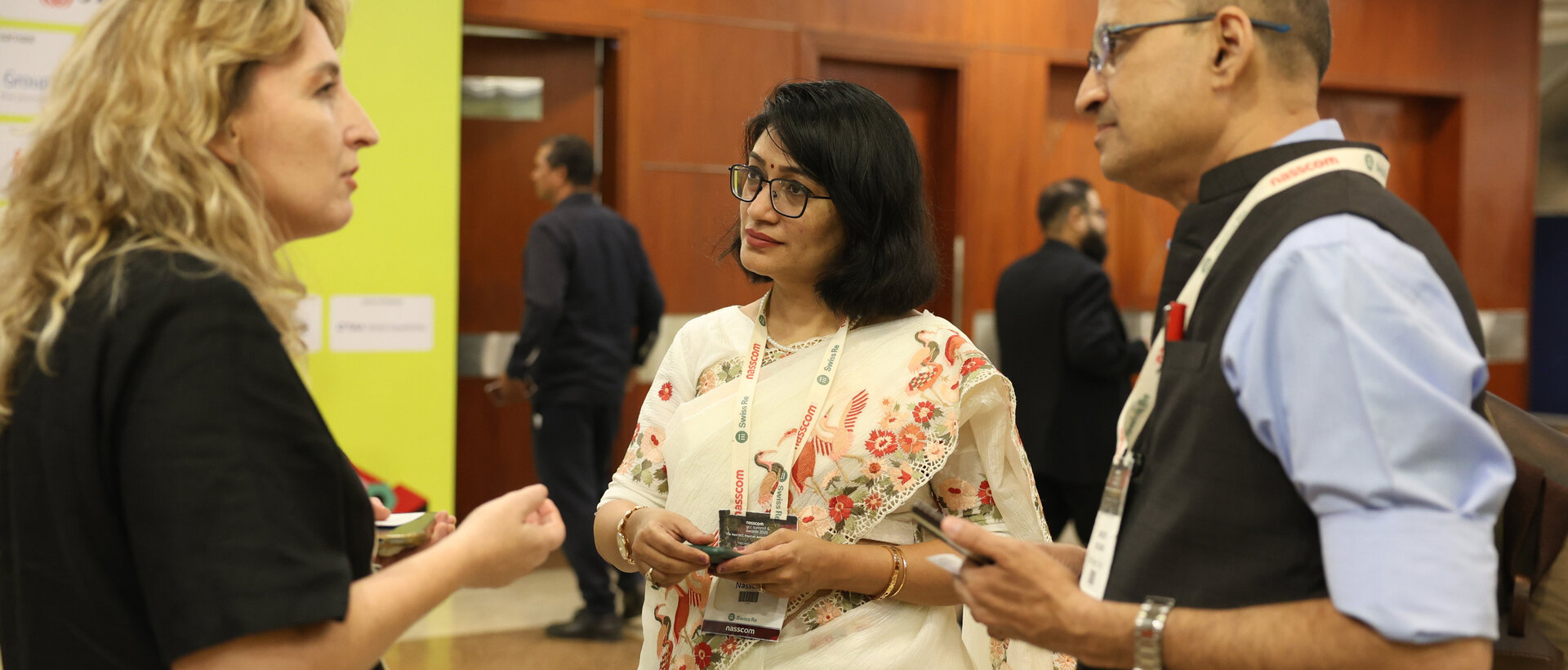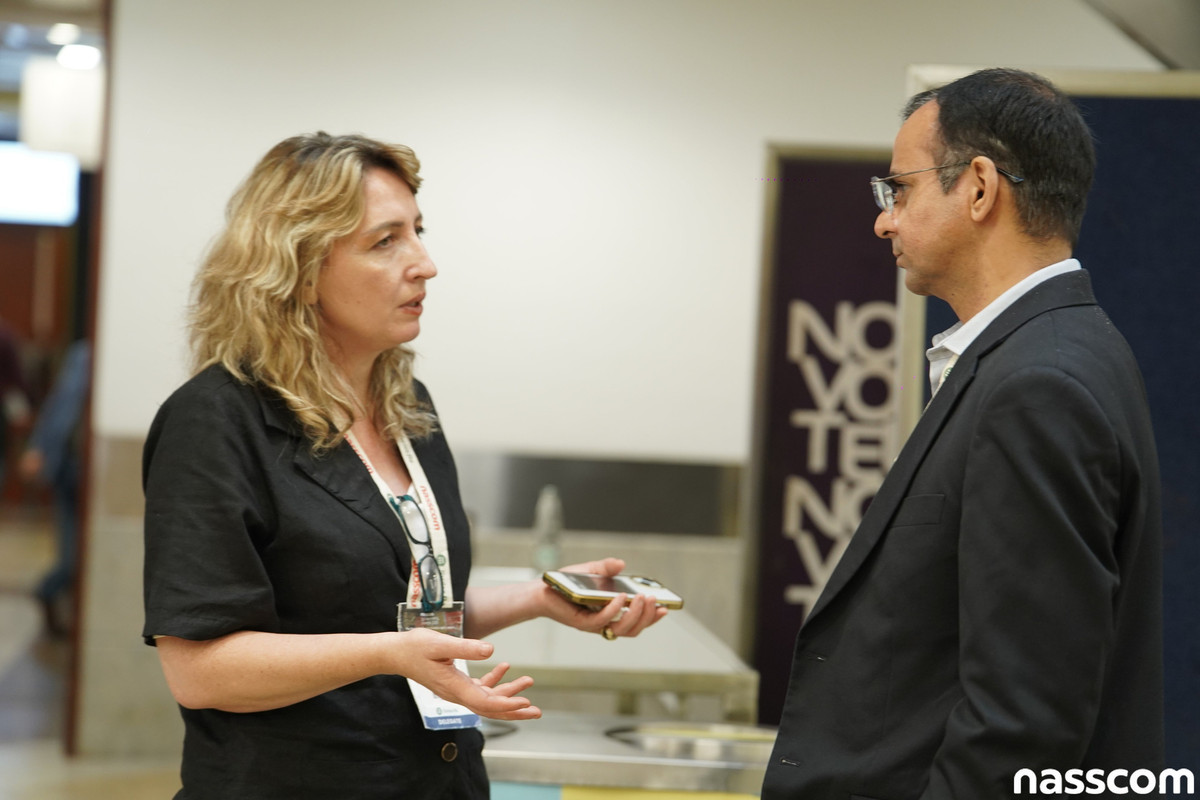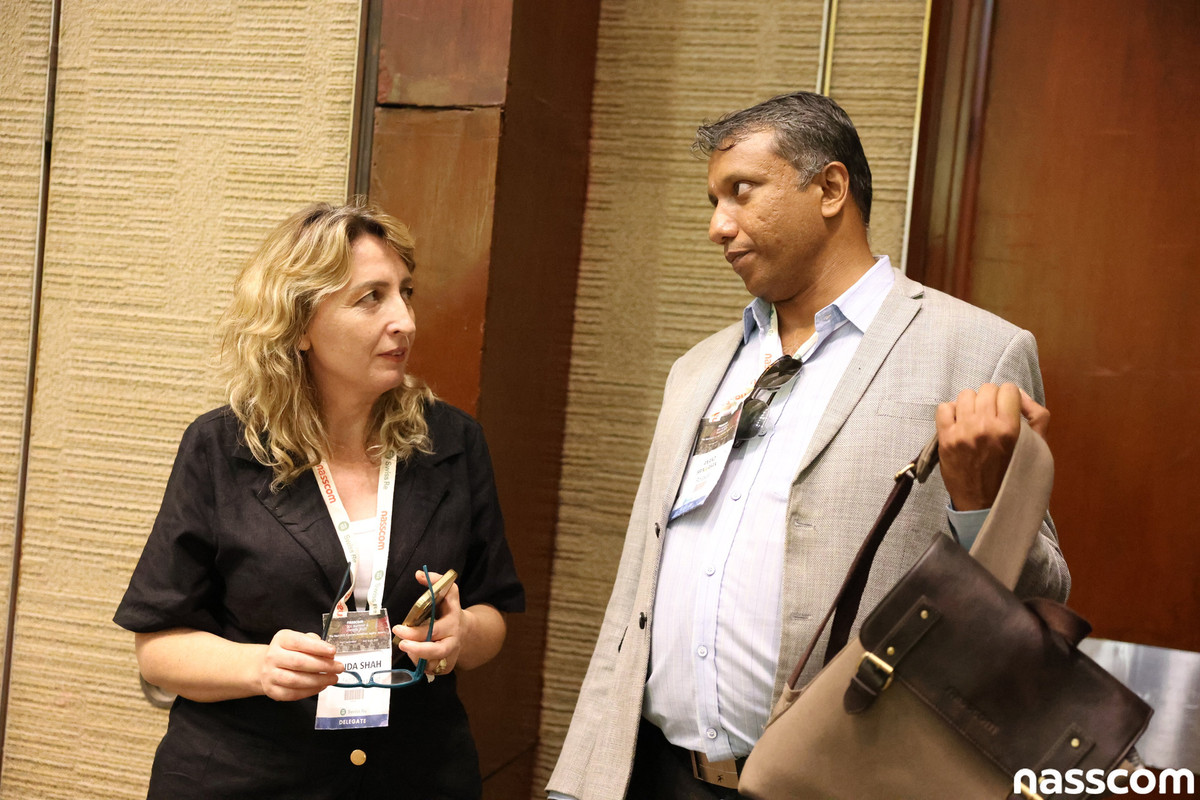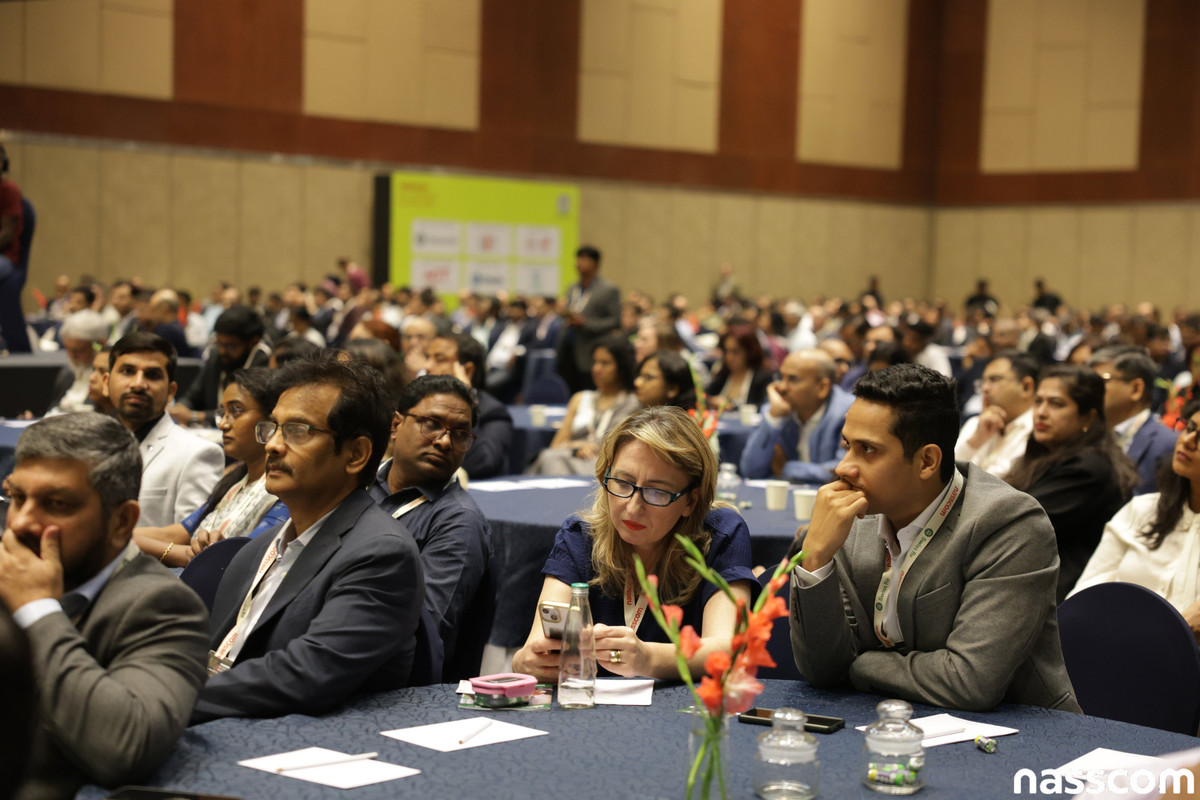
Reflections from the NASSCOM GCC Summit 2025
Attending the 15th edition of the NASSCOM Global Capability Centers (GCC) Summit in Hyderabad was truly enlightening. The theme, “The Next GCC Frontier: Ambition, Agility, Ascent,” resonated deeply, highlighting the evolution of GCCs from traditional operational roles to centers of innovation and strategic collaboration.
India is no longer just the world's back office. We are rapidly becoming a hub of innovation, strategy, and global decision-making. This transformation is exciting, but it also brings new responsibilities. If we are to lead this next frontier of GCCs, we must do so not only with ambition and technology but also with empathy and care.
The People Behind the Progress
As we move toward innovation at scale, we cannot overlook the very foundation of our progress—our workforce. Supporting the growth of GCCs must include ensuring our teams are not just productive but also healthy, supported, and resilient. This isn’t just a moral imperative; it is a business one. A motivated and empowered workforce is essential for long-term transformation.
It’s easy to talk about AI, agile, and automation, but the real transformation happens when we create environments where people feel safe, seen, and supported. The future of work will demand new skills, but it will also demand emotional resilience.




Let’s Look Beyond Technology: What GCC Leaders Need on Their Agenda
Mental Well-being: The Missing Link in the GCC Conversation
India’s Global Capability Centers (GCCs) are engines of innovation and strategic growth, powering global ambitions from within the country. While we rightly celebrate the sector’s technological prowess, scalability, and efficiency, one critical element was notably missing from the discourse at the recent NASSCOM GCC Summit 2025 — the focus on mental well-being.
Even though the summit explored important themes such as Innovation with Purpose and People, Skills, and the New World of Work, mental health, which forms the foundation of sustainable productivity, was not adequately addressed. However, available data clearly demonstrates why it must be included in the core strategy for GCCs:
- Workplace Stress is Widespread: Studies show that every second employee in India experiences anxiety or depression related to work. This is not just a personal challenge; it is a structural issue that affects innovation, employee engagement, and organizational performance.
- The Scale of the Burden: As of 2017, approximately 197.3 million Indians were living with a mental health condition. This is a major public health concern that influences the talent pool across all sectors, including the GCC ecosystem.
- The Economic Toll: India loses an estimated 2,443 disability-adjusted life years (DALYs) per 100,000 people due to mental illness. This translates into a direct loss of productivity. Furthermore, the projected economic loss between 2012 and 2030 is ₹85.5 trillion, driven by increased absenteeism, reduced efficiency, and rising healthcare expenses.
- Impact on Key Workforce Demographics: The most affected age group is between 30 and 45 years. These are the professionals who are driving innovation, leading high-performance teams, and making key strategic decisions in GCCs. When their mental health is compromised, the performance and sustainability of the entire ecosystem are impacted.
Therefore, for GCCs to truly thrive in the evolving global landscape, mental well-being must be recognized as a central business priority. Future conversations in the GCC sector should not only acknowledge this but also integrate mental health into the very fabric of organizational development and growth strategies.
The Productivity Imperative
This isn't just a moral imperative; it's a business imperative. Investing in employee mental well-being is not a cost center; it's a productivity driver. GCCs that prioritize mental health will:
- Boost Productivity: Reduce absenteeism, presenteeism (being physically present but not productive), and employee turnover.
- Enhance Innovation: Foster a more creative and engaged workforce.
- Attract and Retain Talent: Become employers of choice by demonstrating a commitment to employee well-being.
- Improve Overall Business Outcomes: Drive better financial performance and long-term sustainability.
What Does Leading with Empathy Look Like?
During the summit, many leaders touched on the “people, skills, and the future of work” theme. But let’s go one step further. Beyond upskilling, reskilling, and attracting Gen Z talent, we must look at supporting the emotional resilience of our workforce.
This is what leading with empathy in GCCs can look like:
- Designing workplaces where psychological safety is as important as physical safety.
- Encouraging leaders and HR teams to be trained in mental health first aid and trauma-informed management.
- Ensuring insurance coverage includes mental health, in line with India’s Mental Healthcare Act.
- Embedding flexibility, caregiver support, and return-to-work pathways for those navigating mental health conditions.
- Building a culture of openness, where vulnerability is seen as strength, and everyone has assured access to quality mental health care.
These aren't just policy shifts, they are mindset shifts. When embedded into the DNA of GCCs, they empower people to thrive, not just survive.
People and Potential: Why It Matters Now
India’s GCCs are uniquely placed to model a new way of working—one that blends high performance with human-centric leadership.
By prioritizing well-being, we are not stepping away from ambition—we’re strengthening it. Supporting mental health is not about slowing down. It’s about creating the foundation for people to show up fully, sustainably, and meaningfully.
As we return from the summit inspired by global partnerships, next-gen technologies, and bold goals, let’s carry forward one more important commitment: to care for the people behind the progress.
Because the future of GCCs is not just about capability, it’s about compassion.
Not just about scale, but sustainability and not just about innovation, but inclusion.
Let’s build workplaces where growth and well-being rise together.


